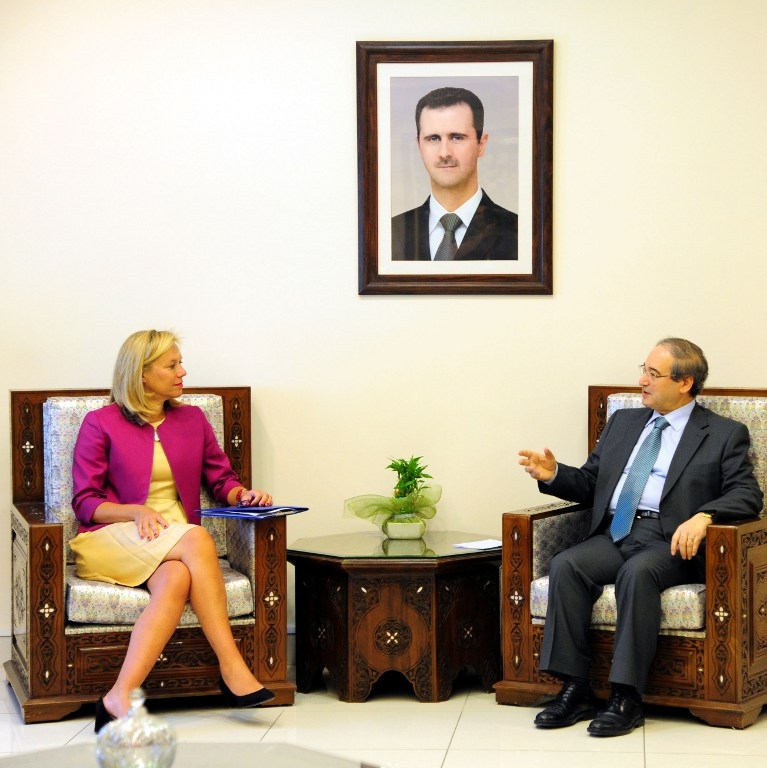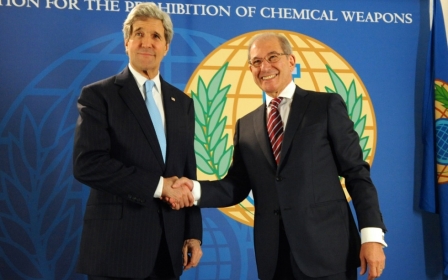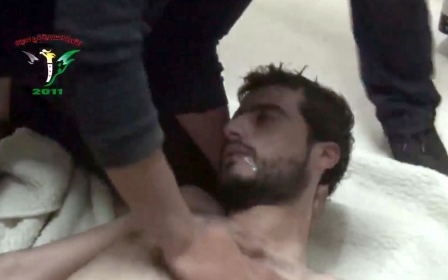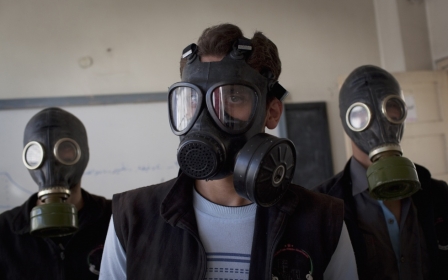Syria now free of chemical weapons, says watchdog

The last of Syria's declared chemical weapons have been shipped from the war-torn country and are en route for destruction at sea, the world's chemical weapons watchdog said on Monday.
"As we speak, the ship (carrying the last chemicals) has just left the port (of Latakia)," Ahmet Uzumcu, head of the Organisation for the Prohibition of Chemical Weapons, said at a press conference in The Hague.
"Removing the stockpile of precursor and other chemicals has been a fundamental condition in the programme to eliminate Syria's chemical weapons programme," Uzumcu said.
Syria had previously shipped out 92 percent of its stockpile of chemical weapons under the terms of an UN-backed and US-Russia brokered agreement last year.
But the remaining eight percent of the stockpile remained at one site and Damascus said it was unable to transport it to the port of Latakia because of security concerns.
"While a major chapter in our endeavours closes today, OPCW's work in Syria will continue," Uzumcu said.
"We hope to conclude soon the clarification of certain aspects of the Syrian declaration and commence the destruction of certain structures that were used as chemical weapons production facilities."
The Syrian foreign ministry confirmed that "the final cargo of chemical agents has today been taken outside Syrian territory."
The Dutch head of the joint OPCW-UN mission, Sigrid Kaag, hailed the end of "the most operationally challenging task within the effort to eliminate the Syrian chemical weapons programme."
"We hope that our contribution will ultimately make a meaningful difference for the Syrian people and the region," Kaag said.
Under last year's agreement Syria had a deadline of the end of June to complete the destruction of its chemical weapons, but it has been widely acknowledged that the deadline would not be met.
The deal was reached after the US threatened to carry out airstrikes against President Bashar al-Assad's government after a sarin nerve gas attack in a rebel-held suburb in Damascus killed around 1,400 people.
A Danish ship is now to take the chemicals for transhipment in Italy's port of Gioia Tauro to the US ship Cape Ray for destruction at sea, while some chemicals are to be destroyed at sites including in the US and Britain.
Uzumcu hailed the disarmament mission as "a major undertaking marked by an extraordinary international cooperation."
"Never before has an entire arsenal of a category of weapons of mass destruction been removed from a country experiencing a state of internal armed conflict," he said.
"Although there were delays in the process, the cooperation of the Syrian Arab Republic has been commensurate with the requirements of the decisions," Uzumcu said.
Systematic use of chlorine
An OPCW investigation team said last week that chemical agents such as chlorine, which Syria was not obliged to hand over, have recently been used in Syria "in a systematic manner".
Assad's government and rebels have both accused the other of using chemical agents, including chlorine, in the bloody uprising that began in March 2011 and in spite of Damascus promising to hand over all its chemical arms.
An OPCW team probing the allegations was attacked with a roadside bomb and gunfire on 27 May, preventing them from accessing the site of an alleged attack in the village of Kafr Zeyta.
Despite not being able to visit the alleged site of the chlorine attack, OPCW officials spoke to doctors in Kafr Zeyta "and obtained their verbal medical reports relating to the treatment of individuals allegedly affected by exposure to chlorine."
France and the US have also alleged that Assad's forces may have unleashed industrial chemicals on several rebel-held villages in recent months.
Syria did not have to declare its stockpile of chlorine -- a weak toxic agent that can be turned into a weapon -- under the disarmament deal as it is widely used for commercial and domestic purposes.
Meanwhile, a former senior British intelligence official has accused the UK's ex-premier Tony Blair of knowing about Syria's chemical weapons capability, despite the latter's claim that has was not aware of it when he was in power.
John Morrison, who was former head of the UK defence intelligence staff and the deputy chief of defence intelligence between 1994 and 1999, wrote in a letter published in the British newspaper the Observer that British intelligence officials had told Blair at least a decade before the 2003 US-led invasion of Iraq.
The incident has caused the former British premier further embarrassment as part of his pretext to invade Iraq was that its government possessed WMDs.
New MEE newsletter: Jerusalem Dispatch
Sign up to get the latest insights and analysis on Israel-Palestine, alongside Turkey Unpacked and other MEE newsletters
Middle East Eye delivers independent and unrivalled coverage and analysis of the Middle East, North Africa and beyond. To learn more about republishing this content and the associated fees, please fill out this form. More about MEE can be found here.




